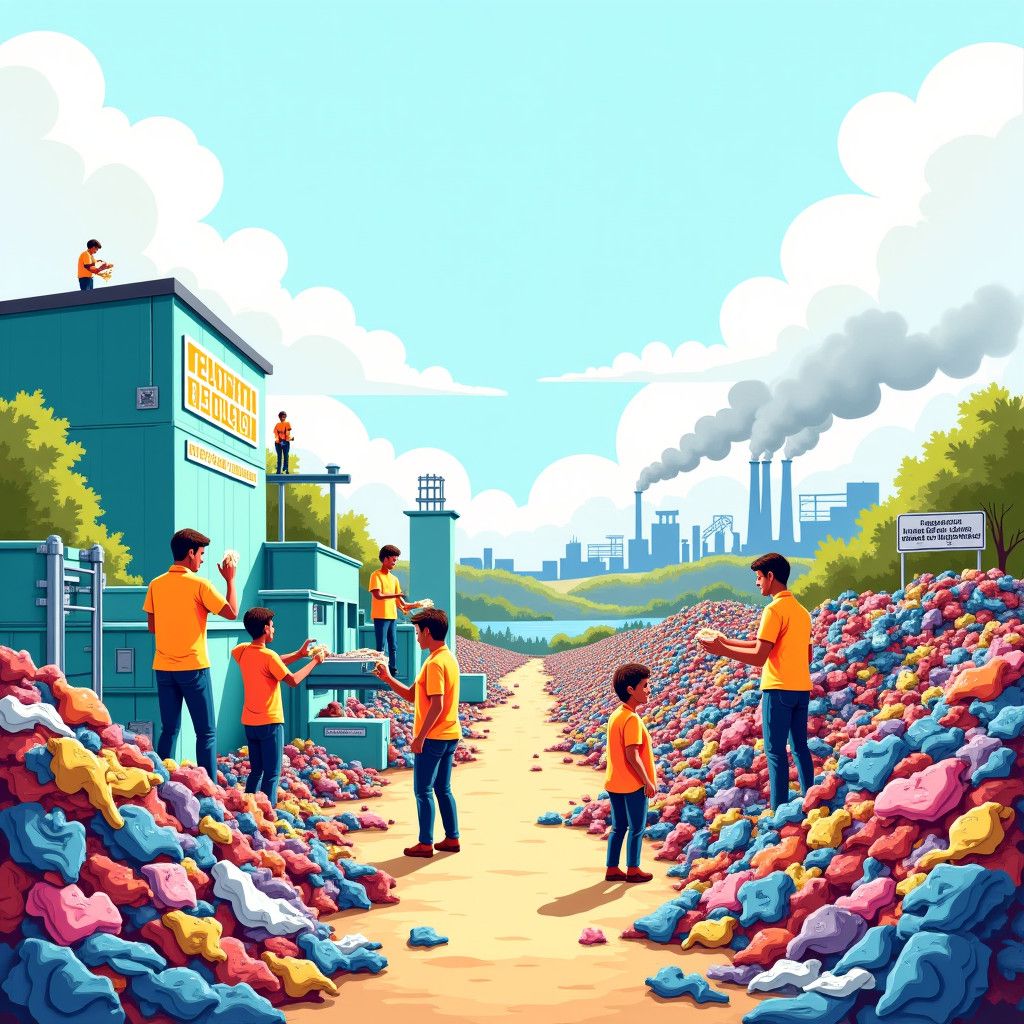In recent years, the fashion industry has faced increasing scrutiny due to its impact on the environment. Amidst this backdrop, Technip Energies, a French engineering giant, is making a significant pivot from its traditional operations, which have focused heavily on fossil-fuel infrastructure, to a promising new venture in textile recycling. With its recent launch of Reju, Technip Energies aims to tap into the growing market for sustainable materials, envisioning a $2 billion business by 2034.
Technip Energies has established itself as a leader in complex engineering projects such as building oil refineries and natural gas facilities. As it evolves, the company identifies textile-to-textile recycling as a key component of a broader strategy that includes investments in decarbonization and a transition to greener energy systems. CEO Patrik Frisk acknowledged the challenges, stating, “We throw away over 100 million tonnes of textiles every year. What the hell is that? It’s not smart.”
The Current Landscape of Fashion’s Sustainability Efforts
Fashion has long been associated with rampant waste, particularly with synthetic materials like polyester, which is deeply entrenched in the industry due to its cost-effectiveness and versatility. However, this popularity comes at a heavy environmental cost; studies estimate that the fashion sector accounts for roughly 14% of global plastic pollution. The sheer volume of textile waste is staggering, and as consumers become more aware of these issues, the demand for recycled materials is on the rise.
Despite the promising market trends, early movers in textile recycling face a challenging environment. For example, Renewcell, a pioneer in the recycled materials space, filed for bankruptcy earlier this year as its recycled products did not meet market expectations. Additionally, while major fashion brands commit to sustainability, the market share of recycled polyester remains static.
Investors remain optimistic, nonetheless. Companies like H&M Group and Vargas Holding have raised substantial capital to promote recycled polyester initiatives, illustrating the belief that legislative and societal shifts will mandate a move toward sustainable practices. This optimism is echoed by the European Union’s Green Deal strategy, which emphasizes a circular economy focused on recycling and reuse, placing the fashion sector under the regulatory spotlight.
Technologies and Innovations Driving Change
Reju, Technip Energies’ response to this need, leverages innovative recycling technology developed in collaboration with IBM. The process allows for the recycling of mixed textile waste into high-quality polyester pellets while producing only half the emissions compared to virgin polyester production. Having commenced operations at a 1,000-tonne plant in Germany, Reju is on track to make significant investments in industrial-scale facilities across Europe and the US, aiming for a total production capacity of 100,000 tonnes of recycled polyester by 2028.
Frisk argues that consumers may not prioritize sustainability on its own but will choose products that outperform existing options. This insight underscores the potential for Reju to capitalize on the demand for product quality alongside ecological considerations. As Frisk stated, “The consumer won’t pay for a green product, but they’ll pay for a better product.”
Navigating Challenges in the Recycling Sector
Despite the promising strategies and innovative technologies, the path to achieving Technip Energies’ ambitious goals is fraught with challenges. The inherent complexities of transforming the current textile waste ecosystem into a reliable supply chain present significant obstacles. Furthermore, the high costs associated with developing new recycling processes may deter early adoption and widespread implementation.
As Frisk articulated, “This is a new product on a new system…it will be much more expensive and anyone who tells you different is dreaming.” The need for substantial initial investments and the development of necessary infrastructure will be pivotal in determining the success of Reju and similar initiatives.
Industry-wide, there is a growing acknowledgment that while recycling plays a crucial role, it cannot singularly solve the environmental dilemmas faced by the fashion industry. Critics urge caution, arguing that recycling should complement broader strategies that encompass reduction in consumption and shifts toward more sustainable business practices.
Conclusion
The ambition of Technip Energies to transform textile recycling into a substantial business opportunity reflects a broader shift in the fashion industry towards sustainability. With strategic investments and innovative technologies, companies like Reju are set to redefine the role of textiles in an increasingly eco-conscious market.
However, as the journey unfolds, it remains essential for stakeholders in the industry to manage expectations regarding environmental impact and consider recycling as one tool among many necessary to create a more sustainable future.












